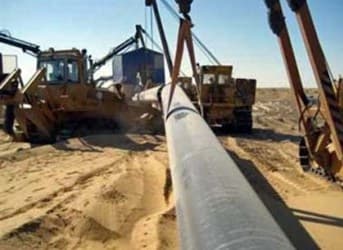First, the bad news.
On 15 April, insurgent forces in Afghanistan began unexpected attacks on embassies, a supermarket, a hotel and the parliament in the capital Kabul. Taliban spokesman Zabihullah Mujahid told Reuters, "These attacks are the beginning of the spring offensive and we had planned them for months."
At least eight policemen and five civilians were killed in the assaults, which spread across in four provinces of the country, killing 74, including 32 security forces. According to the government, roughly 36 Taliban insurgents, many with suicide vests, attacked government and foreign facilities in not only the capital Kabul, but Logar, Nangarhar and Paktia provinces as well. In the insurgents Kabul resisted Afghan security forces’ counterattacks for more than 18 hours. In Kabul, where security recently transitioned to Afghan forces, the gunmen took positions in under-construction buildings in Sherpur, Darolaman, near the parliament building, Paktiakot and Pol-e Charkhi, striking key government offices.
The Taliban subsequently claimed responsibility for the attacks, saying that the German and British Embassies and the headquarters of the International Security Assistance Force were their prime targets.
Just another bad day in Kabul, or something more significant?
Across the country’s eastern frontier, the same day in Pakistan 100-150 militants stormed the Bannu central prison, roughly 120 miles south of Peshawar and freed 384 prisoners, among them a man sentenced to death for trying to assassinate former president Pervez Musharraf. Ehsanullah Ehsan, spokesman for the Tehreek-e-Taliban Pakistan (TTP) militant group, claimed responsibility for the assault.
Leaving ideology aside for a moment, the attacks highlighted the ability of militants to strike Kabul’s diplomatic zone after more than 10 years of Western intervention in the U.S.-led “Operation Enduring Freedom.” Washington optimism aside, the salient point about the assaults is that the militants were able to infiltrate large numbers of fighters and weapons into the tightly-guarded capital, where he Afghan National Army and police have primary responsibility for Kabul's security.
The attacks were another election-year setback in Afghanistan for U.S. President Barack Obama, who wants to present the campaign against the Taliban as a success before the departure of most foreign combat troops by the end of 2014.
The Taliban claimed responsibility for the attacks, but Afghan and U.S. officials downplayed their importance, trotting out instead the Haqqanis, a network of tribal militants who live along the Pakistan-Afghanistan border, with U.S. ambassador Ryan Crocker stating, "My guess, based on previous experience here, is this is a set of Haqqani network operations out of north Waziristan and the Pakistani tribal areas. Frankly I don't think the Taliban is good enough."
So, who’s to blame for the attacks? Afghan President Hamid Karzai, after praising the Afghan forces for their sacrifices, said on 16 April that the entry into Kabul and other provinces showed the intelligence failure of Afghan and NATO troops. Karzai said, lauding Afghan forces for their efforts, "They have proved that they can defend the country successfully. The terrorists, playing into outsiders’ hands, should realize that they cannot prevent Afghans from development and achieving peace and stability with such attacks."
While the assaults are a major PR embarrassment for both Kabul and Islamabad, their implications extend far beyond military operations. The turmoil means that the proposed $7.6 billion, 1,040 mile-long Turkmenistan-Afghanistan-Pakistan-India natural gas pipeline is effectively DOA, having first been proposed even before the Taliban captured Kabul, as in 1995 Turkmenistan and Pakistan initialed a memorandum of understanding. TAPI, with a carrying capacity of 33 billion cubic meters of Turkmen natural gas a year, was projected to run from Turkmenistan’s Dauletabad gas field across Afghanistan and Pakistan and terminate at the northwestern Indian town of Fazilka.
As the rising guerilla turmoil roils both Afghanistan and Pakistan, good luck finding investors willing to underwrite such a project across such lawlessness. For those with a regional sense of irony, in 1997, as TAPI would have required the assent of the Taliban, the Central Asia Gas Pipeline Ltd. consortium, led by U.S. company Unocal, flew a Taliban delegation to Unocal headquarters in Houston, where the Taliban signed off on the project, until 9/11 and the subsequent American-led military operations in November 2001 drove them from power into the hinterlands.
If recent events are anything to go by, then if TAPI is to succeed, 27 years after it was first proposed, then Houston may yet have to fire up the barbeques for some of Mullah Omar’s acolytes. Given the recent assaults in both Afghanistan and Pakistan. Things are back to square one in any future TAPI negotiations, as the attacks indicate that neither ISAF forces in the former or Pakistani security troops in the latter are on top of the situation, an essential precondition for a multi-billion dollar project.
And, a quick note to those Longhorn State energy magnates with short memories for hosting their future turban-clad Central Asian guests yet again – no bacon or pork chops at the barbeque.
By. John C.K. Daly of Oilprice.com


















